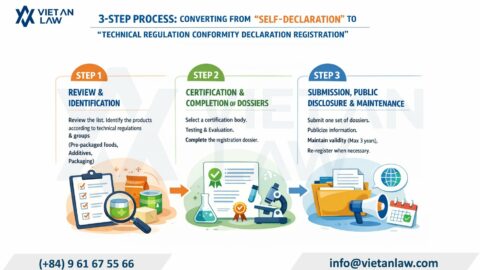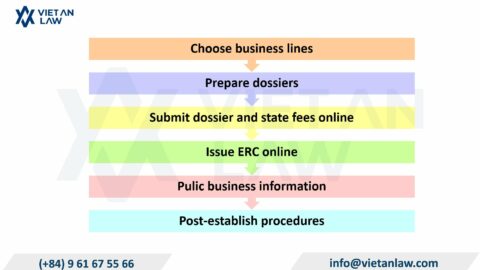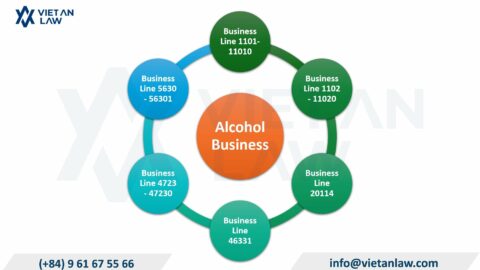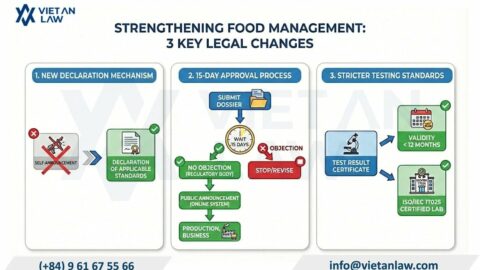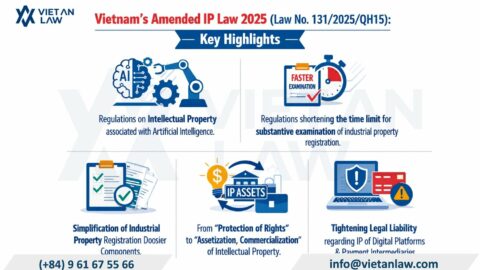Trade secrets are the most valuable asset a business can own. It is not only unique production formulas, effective business processes or loyalty lists, but also includes countless other commercially valuable information such as management know-how, unique marketing strategies, research and development results of new products, etc. Strategic vendor lists, and even insider information on categories like corporate culture. This information, when strictly protected, will help businesses maintain a sustainable competitive advantage in the market. Thanks to business secrets, businesses can create unique products and services that are different from competitors, thereby attracting customers and building loyalty. Moreover, business secrets are also the key for businesses to expand the market, increase revenue and improve their position in the market. The protection of trade secrets not only benefits businesses but also contributes to the overall development of the economy. When businesses are protected by intellectual property rights, they will be motivated to invest in research and development, create new products and services, promote innovation and enhance the competitiveness of the economy. Viet An Law will guide customers to protect business secrets in Vietnam through the article below.
Table of contents
“Trade secrets are information obtained from financial and intellectual investments, which have not been disclosed and are capable of being used in business.”
The definition of this trade secret can be understood as follows:
Business secrets are a collection of unique and valuable information, created from the financial and intellectual investment process of the enterprise. This information can include forms such as text, data, images, formulas, processes, techniques, and also intangible knowledge and experience. The special thing is that this information has not been widely disclosed, is thoroughly protected by the owner and has the ability to be directly applied to business activities, helping businesses create new products and services, improve production processes and create competitive advantages in the market.
| For businesses | For the economy |
| · Create a competitive advantage: Business secrets are a “competitive weapon” that helps businesses differentiate products and services, thereby attracting more customers and increasing revenue.
· Investment protection: Large investments in research and development of new products need to be protected for businesses to recover capital and generate profits. · Promote innovation: When protected, businesses will boldly invest in research and development of new products, contributing to promoting innovation. |
· Investment attraction: A business environment that well protects intellectual property rights, especially trade secrets, will attract domestic and foreign investors, contributing to economic development.
· Improving competitiveness: The protection of trade secrets helps Vietnamese businesses improve their competitiveness in the international market. · Sustainable Development: Protecting business secrets contributes to building an economy based on knowledge and innovation. |
Step 1: Set up a working group
Step 2: Identify the types of confidential information of the business, which can be the following information
Step 3: Decentralize security density
Step 4: Make a detailed catalog
Building an effective security management system is paramount for every business. To achieve this goal, businesses need to develop a clear and detailed security policy, including regulations on accessing, sharing, storing, and destroying information. Besides, the proper decentralization of access, granting only permissions to those who really need it, is also an important factor. In addition, regular training for employees to raise security awareness and equip them with the knowledge they need to prevent threats. The use of security tools such as firewalls, intrusion detection systems, and data encryption also plays an important role in protecting information.
| Physical Storage | Electronic Storage |
| · Store in a safe or safe with fireproof, anti-theft features or a file cabinet with a lock, placed in a safe location, with limited access.
· Storage location: Build a separate area for storing documents, with a surveillance camera system installed. · Restricted Access: Only authorized persons are allowed in this area. · Periodic Inventory: Perform a periodic inventory of documents to ensure that no documents are lost or damaged. |
· Strong password settings: Strong passwords are passwords that combine letters, numbers, and special characters. In addition, businesses should change their passwords at least once every 3 months.
· Data encryption: Data encryption is an essential security measure. Encryption of the entire hard drive helps protect data from the risks of loss and theft of the device. At the same time, encrypting data in transit using secure protocols such as HTTPS is essential to ensure security during data transmission over the network. · Data backup: Backing up data is one of the most important data protection measures. To ensure that data is always safe, we should perform regular backups, store it in multiple locations, and periodically check it to ensure that it can be recovered when needed. · Cloud data storage: When choosing a cloud storage service, the most important factor is to look for a reputable provider with a high commitment to security. Two-factor authentication and data encryption are essential features to keep your data safe. · Access management: To ensure data safety, strict access management is crucial. Clear decentralization of rights to only those who need access to data and regular activity monitoring helps detect and prevent unauthorized access. |
If you need support with the storage of trade secrets in Vietnam, please contact Viet An Law for the earliest support!
